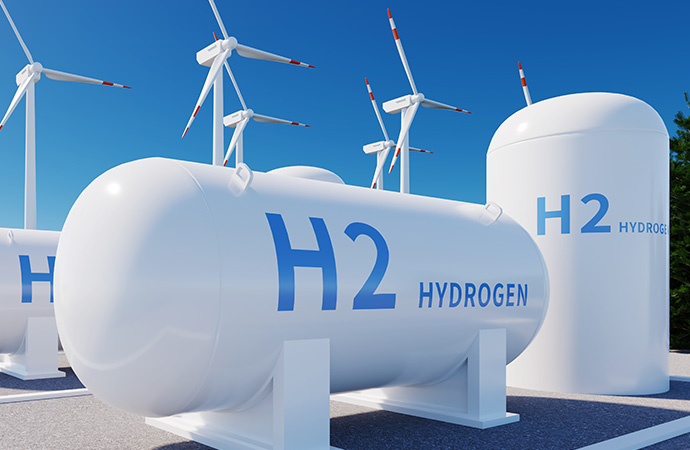Hydrogen Energy

- POINT 1
It is a clean energy
source that does not emit pollutants. - POINT 2
It is readily accessible
anywhere on Earth. - POINT 3
It boasts superior stability
compared to other fuels. - POINT 4
With the ability for recycling,
it ensures sustainability, allowing for energy independence without depletion.
Hydrogen Energy Utilization
Hydrogen Energy
- Mobility
Application in various
modes of transportation
such as drones, automobiles,
buses, freight vehicles,
delivery services, military vehicles,
aircraft, and construction equipment. - For residential
and industrial use.Operating boilers and
supplying energy for factories,
buildings, and other facilities. - Renewable
energy storageStoring in various forms
such as gas, liquid, and
other compounds, and converting
to electricity when needed. - Production
Water electrolysis,
natural gas + water industrial
process byproduct.



